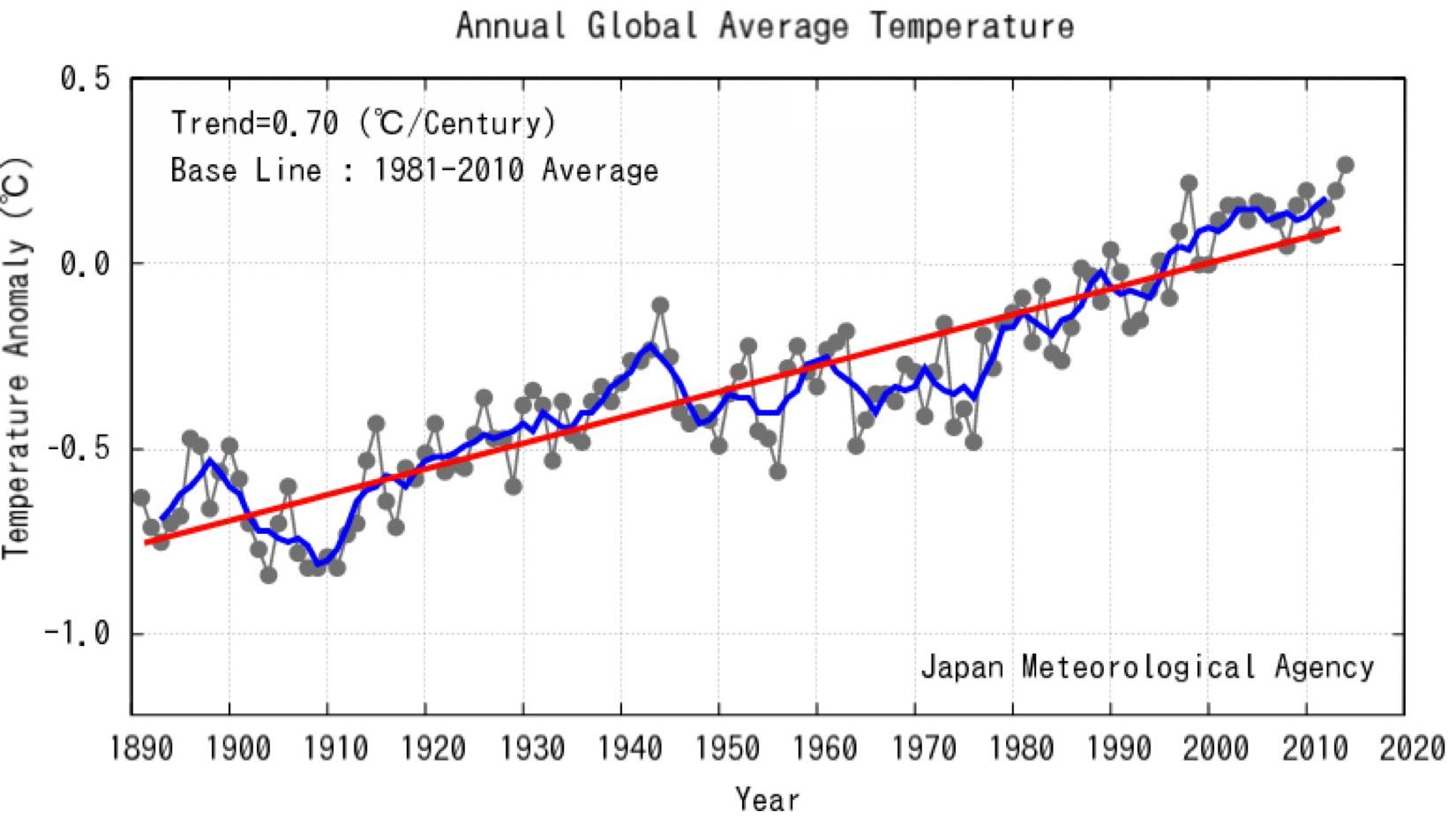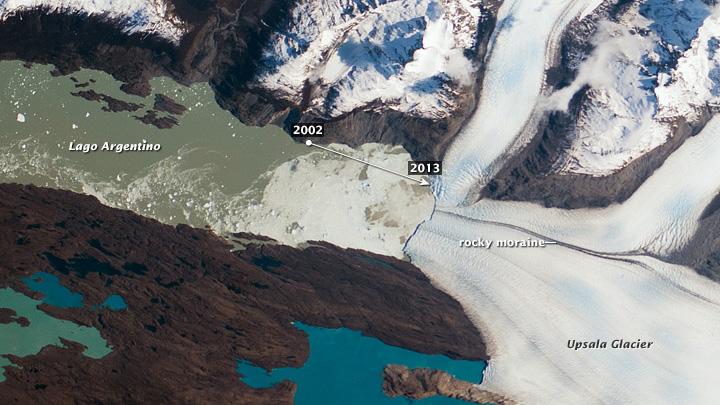Winter may be knocking on your window, but 2014 was the warmest on record
Glaciers around the world are retreating as the climate warms. NASA tracked a retreat of 3 kilometers (2 miles) of Argentina's Upsala glacier, in Patagonia, between 2001 and 2013. A new anaysis of global temperature data from the Japan Meteorological Agency found that 2014 was the warmest year on record.
You don't have to look hard to find evidence that the earth is warming up. In fact, you have to look pretty hard to find something that suggests that the earth isn’t warming up.
You have to look past the rapidly melting ice around both poles and on most of the world's glaciers. You have to look past the rapidly warming Arctic and rising sea levels.
You have to look past the millions of data points from every corner of the globe that have convinced virtually all of the world's best climate scientists and major scientific organizations that climate change is real, and happening now.
But there are still a few folks who do look past all this evidence and contend that the earth is not warming. And the data most of them point to first to support this argument are recent global average surface temperature records.
“Contrarians will often point to 1998, which was by some estimates the warmest year on record prior to 2014,” says Michael Mann, a leading climate researcher at Penn State University. “And they'll say 'look, we haven't broken a record in more than 15 years, global warming must've stopped.'”
Of course, that argument goes out of its way to ignore all the other evidence on climate change. It also ignores the many well-understood reasons why surface temperatures aren't just going up in a smooth, unbroken line.
But this week's news from the Japanese Meteorological Agency makes it even harder to make the argument that the earth isn’t warming.
After crunching the data for last year, the agency reports that “global average surface temperature in 2014 … was the warmest since 1891,” when the first such records were kept.
The Japanese data show 2014 edging out 1998 by a tiny fraction of a degree and sitting more than a full degree Fahrenheit above the average for the 20th century.

The new report is the first of four analyses of global surface temperatures for 2014 with others due in the next few weeks from NASA and NOAA here in the US and the Hadley Center in the UK. Each of the four uses slightly different ways of gathering and analyzing the data, but Michael Mann says he'd be surprised if those other reports don't come to the same conclusion.
And he says the bigger trend is unmistakable.
“This isn't just an isolated year,” Mann says. “The most recent year was the warmest year on record, during the warmest decade on record, during what we think was the warmest multi-decadal period of warmth in more than a thousand years.”
Mann says the only real surprise from the numbers is that, unlike in 1998, this new record hot year came during a part of the global climate cycle that's usually not so warm.
“2014 broke the record without an assist from an El Niño event,” Mann says.
El Niño is a cyclical warming of part of the Pacific ocean that affects weather around the world, and it was one of the things that helped push global temperatures so high back in 1998.
But this time, no El Niño. And Mann says that concerns him.
“What it's telling us is that the signal of global warming is now starting to swamp even the year to year variations in climate,” he explains.
In other words, all that carbon pollution we're pumping into the atmosphere is becoming a stronger influence on our climate than natural cycles and events.
And despite some important policy shifts in 2014 from big polluters like the US and China, those emissions just keep going up.
Listen to an extended interview with Michael Mann:
